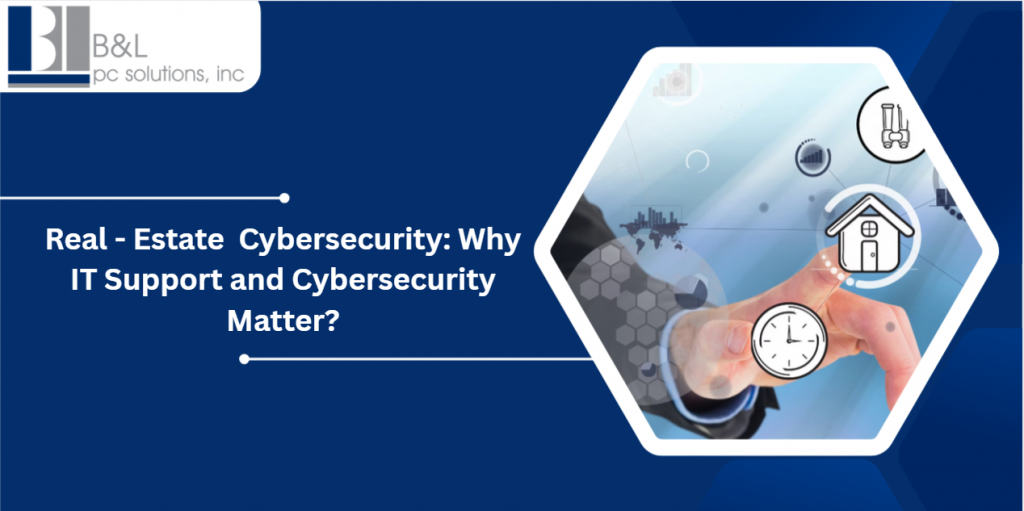
Last year, across the United States, there were 3,158 reported data compromises affecting over 1.35 billion people. Buried in those numbers are hundreds of real estate companies that thought they were not too important to be targets, or that standard antivirus software would be enough protection.
It’s surprising how businesses that handle such sensitive data can have a lax approach to security. Real estate firms handle some of the most critical data. Their documents include social security numbers, bank account details, tax returns, and wire transfer information, each worth hundreds of thousands per transaction.
Yet many leading real estate businesses remain completely unprotected online, exposing billions of records, including tax IDs and court judgments.
What Real Estate Cyberattack Data Reveals
The industry ranks seventh nationwide for cyberattacks, and it's not hard to see why. Wire fraud schemes specifically targeting real estate transactions stole $145 million last year. Meanwhile, cyberattacks overall jumped by a huge percentage in early 2025, with organizations being hit multiple times. Real estate companies without a robust IT infrastructure and cybersecurity measures aren't just vulnerable. They are practically handing criminals an invitation to attack.
These numbers represent actual families who have lost their down payments. Buyers are watching dream homes slip away. Sellers are unable to close because funds disappeared into untraceable overseas accounts.
Why Do Cybercriminals Choose Real Estate Firms?
A typical closing day at a real estate office involves wire transfers ranging from thousands to several million. They have file cabinets or cloud folders stuffed with critical data carelessly. Many of their agents work from home, offices, and coffee shops, using public Wi-Fi.
Now, where would criminals choose to strike? A bank with its security teams, monitoring systems, and protocols? Or a real estate agency running on whatever computer system seemed affordable five years ago, protected by easy-to-crack passwords?
Now you got it! That's why real estate companies are sitting targets.
Business email compromise scams pulled in $2.9 billion last year. The approach is simple.
- Criminals research your pending transactions pulled from public platforms.
- They create an email address that is strikingly similar to your company’s name.
- They send a message, such as updated wire instructions, that looks authentic.
- Money gets wired, and it disappears.
Many experienced professionals fall for such tricks because they are that convincing. The difference between clicking and pausing to verify? Rushing through tasks before a weekend or following security protocols.
Ransomware's another nightmare. Criminals lock your entire system, and suddenly, every file, every listing, every contract, every client record is inaccessible. They're demanding payment, usually in cryptocurrency. You are shut down until you either pay the ransom or restore from backups, assuming you have them, which many companies don't.
Security Fail and the Domino Effect
The immediate financial loss from a cyberattack is just the beginning. What follows can be catastrophic.
- You will start losing clients quickly, both existing and future ones.
- They will spread the word quickly through community groups and social media.
- Your referral pipeline, the lifeblood of the real estate business, will dry up completely.
What follows will be a legal hassle.
- The agencies will check whether you have violated the regulatory requirements around data protection.
- You will be heavily fined.
- Clients may file lawsuits charging that you were negligent with their information.
- Insurance companies will look for reasons to deny coverage for your professional liability insurance.
- Inadequate cybersecurity measures give them a pretty good point to argue.
Operational shutdown hurt the worst. Ransomware locks you out of everything. The embarrassing part is telling people, in the middle of buying or selling a home, that everything's on hold indefinitely. You start losing deals rapidly. Calculate those commissions, and you are looking at more money than you would have spent on proper IT support for the next few years.
What Real IT Support Looks Like
Most real estate professionals think IT support means calling someone when the printer jams or someone forgets their password. Real IT support goes way beyond that.
It starts with architecture. Your network security is designed from the bottom up by specifying how devices connect, access responsibilities, and how data moves across your systems. When you categorise your network effectively, a breach in one section remains contained there.
- Professional IT teams watch your network 24/7 with tools that flag unusual activity.
- Failed login attempts at odd hours are immediately noticed.
- An alert is triggered when someone suddenly downloads massive amounts of client data.
- Unusual email patterns are blocked before they reach inboxes.
Hackers often get entry to your system by means of flaws in old software. Professional IT support on long Island makes sure that vulnerabilities are patched quickly.
Layered Defenses: Building Solid Security
Single points of failure represent potential disasters. A well-run IT service uses multiple layers of security, each catching what someone else might have missed.
- Begin with email security because that's the starting point for most of the attacks.
- Advanced filtering searches inbound messages for red flags, such as suspicious links, spoofed addresses, and odd requests.
- Authentication methods verify that emails truly come from who they claim to be. These systems detect fraud when crooks try to impersonate your title firm.
There is no substitute for multi-factor authentication. Data breaches and phishing attacks result from unauthorised access to passwords.
Criminals cannot access your systems, even if they steal your password, unless they have this other element of verification. Multi-factor authentication is like needing two separate keys to open a safe.
Data is encrypted in transit or in storage. If hackers intercept the message, the encrypted wire instructions will appear unintelligible.
Regular vulnerability assessments look for weak points. You get a detailed report with specific fixes prioritized by risk level.
Penetration testing involves simulating attacks to identify where defenses fail. Ethical hackers try to break into your systems using the same techniques that criminals would. It’s better to find vulnerabilities this way than through an actual breach.
Backup systems are your disaster recovery plan. You can restore data from a previous backup and keep operating. No need to pay ransom, no dealing with data loss, and minimal downtime.
Human Error – The Bane of Many Organizations
Technology can't fix human error, and humans make errors constantly. Your employees will either save you or sink you.
Most breaches succeed through social engineering, such as manipulating people into making mistakes. Your employees must be trained to identify such attempts. Training methods also matter. Avoid boring hour-long seminars that people forget immediately. Short, frequent sessions that cover current tactics work better. Share real examples from recent attacks. Incorporate hands-on practice in identifying suspicious emails.
For high-risk activities, protocols must be specific and compulsory. Verify verbally and repeatedly. Ensure that all major transactions are authorized by the team, not just individuals. Make these rules inflexible.
Choose a Managed IT Service on Long Island With Real Estate Expertise
Generic IT support companies might keep your systems running, but they won't protect you from industry-specific threats because they don't understand your unique challenges.
You need a partner who knows real estate operations. They should understand how closings work, what data you handle, where vulnerabilities typically occur, and the compliance requirements you deal with.
Proactive service matters infinitely more than reactive support. Yes, they should fix problems when they happen. But mainly, they should prevent problems from happening through continuous monitoring, regular maintenance, and staying ahead of emerging threats. You want someone calling you about potential vulnerabilities before criminals exploit them, not after.
Look for comprehensive coverage. You don't want three different vendors handling network management, security, and backups. That creates gaps where responsibility overlaps. One partner managing everything means accountability stays clear and nothing falls through the gaps.
Response time guarantees must be in writing. Service level agreements should specify exact response times for different priority levels.
Conclusion
Comprehensive IT support and robust cybersecurity on long Island are basic operating requirements. The cost of proper protection is probably less than one month's commissions. The cost of a successful attack is potentially everything you have built.
Every transaction you handle involves enormous trust. Clients are handing you their life savings, their personal information, their dreams of home ownership or financial security from a sale. Protecting what they've entrusted to you isn't optional. It's fundamental to operating ethically and professionally.
At B&L PC Solutions, we specialize in real estate IT support because we have seen too many horror stories. We know the threats you are facing. We understand how real estate businesses operate. We have built our services specifically around the vulnerabilities that criminals target in this industry.
Our comprehensive IT support and cybersecurity solutions give you the foundation to work confidently while less-protected competitors become the targets criminals prefer, easier marks with weaker defenses.
Don't become that next cyberattack story. Strengthen your defenses now, while you still have something to protect. Contact B&L PC Solutions.
Tags: CyberSecurity, ITSupport, RealEstateIT





